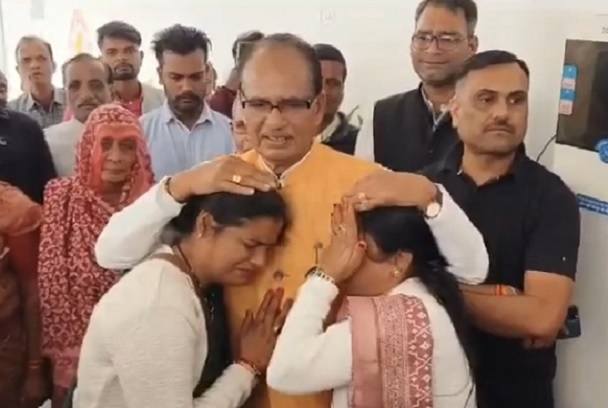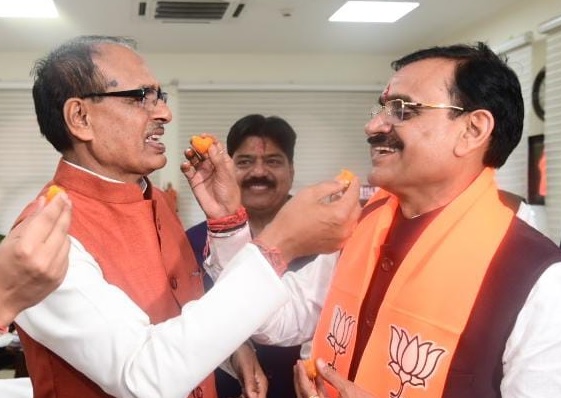Religious identity Vs personal freedom: How personal are the personal laws in India

By Shahid Parvez Sayed
NEWSBITS.IN
In India, the personal laws governing marriage, divorce, inheritance, and succession, are often described as 'personal‘ because they are rooted in religious or community identity. But how 'personal' are they really?
The term suggests autonomy and choice, yet in practice, these laws often bind individuals to rigid frameworks dictated by birth, leaving little room for dissent or secular alternatives.
The recent Supreme Court case filed by a woman hailing from Kerala who sought an exemption from Sharia inheritance laws, has reignited old debates about the true nature of these laws and their compatibility with constitutional rights.
Personal laws in India trace their origins to colonial-era classifications, where the British codified religious customs into legal systems for Hindus, Muslims, Christians and the others.
After the country gained independence, India still retained this plural legal structure, ostensibly to protect religious freedom. However, this system has created a paradox too. While personal laws are meant to reflect community identity, they are enforced by the state, making them less about individual choice andmore about the collective imposition.
The key examples include the Muslim Personal Law that governs the inheritance, marriage and divorce based on Islamic principles and The Hindu Succession Act.
This is the Act which Regulates property rights for Hindus, Sikhs, Jains and Buddhists, as well. Besides, there is the Christian Marriage Act that oversees matrimonial norms for Christians.
Critically, these laws apply automatically to individuals based on their religious identity at birth, regardless of personal belief or dissent.
India‘s Constitution guarantees fundamental rights to equality (Articles 14–15), freedom of religion (Article 25), Yet personal laws operate in a contested space where religious freedom clashes with gender justice and individual liberty and equality. Article 25 protects the right to practice and propagate
religion, but courts have clarified that this does not extend to practices that violate constitutional morality.
For instance, in Shayara Bano v. Union of India (2017), the Supreme Court struck down instant triple talaq, calling it unconstitutional and arbitrary. Similarly, the Kerala woman‘s case questions whether religious identity should dictate legal rights after renunciation.
The Kerala petitioner‘s argument hinges on the 'right to exit'—a facet of religious freedom. If someone renounces their faith, should they remain bound by its laws?
The Supreme Court‘s ruling could affirm that personal laws are not an irrevocable life sentence but a choice.
Personal laws are far from truly personal in practice.
Gender Discrimination: Many religious laws are not generous towards woman believers when it comes to sharing property or in familial disputes.
No Opt-out Mechanism: Individuals cannot freely choose secular laws (e.g., the Indian Succession Act or the Special Marriage Act) without the navigating bureaucratic hurdles or societal stigma. Courts and governments enforce these laws, blurring the line between religious practice and state authority.
Indian courts have increasingly challenged the absolutism of personal laws: Firstly, the Triple Talaq Judgment (2017): Declared instant divorce as completely unconstitutional.
Second in the Joseph Shine v. Union of India (2018): Decriminalized the adultery & emphasizing the individual
autonomy over patriarchal norms.
Thirdly, Indian Young Lawyers‘ Association v. State of Kerala (2018). It opened Sabarimala Temple to women, asserting that religious practices must comply with the constitutional rights.
These rulings underscore that personal laws cannot override fundamental rights. The Kerala case could extend this logic, allowing individuals to sever ties with religious laws upon renouncing
faith.
It has a unique potential to usher into a paradigm shift in interpreting the personal laws of various
communities and to make individual as the key element of legal jurisprudence justice rather than the entire communities.
This case highlights three critical reforms:
Legal frameworks must let individuals opt for secular laws without disenfranchisement. Gender-Just Interpretation i.e.
Courts should reinterpret religious laws through the lens of equality, as seen in the Hindu Succession Act reforms.
Personal laws, in their current form, are more about communal identity than personal choice.
The recent Kerala woman‘s petition is a reminder that justice demands respect for individual agency—whether in matters of faith, property, or dignity. For personal laws to be truly ― 'personal;, they must evolve from rigid, birth-based mandates into systems that honor constitutional rights and the freedom to choose.
As India navigates this complex terrain, the goal should not be to erase diversity but to ensure that no citizen is forced to trade their rights for their identity.
After all, in a democracy, the most―personal law of all is the Constitution itself. The question is not whether personal laws should exist, but whose 'person' they truly serve. When laws become bridges to justice, India will realize the promise of itsfounding ideals: liberty, equality & fraternity









